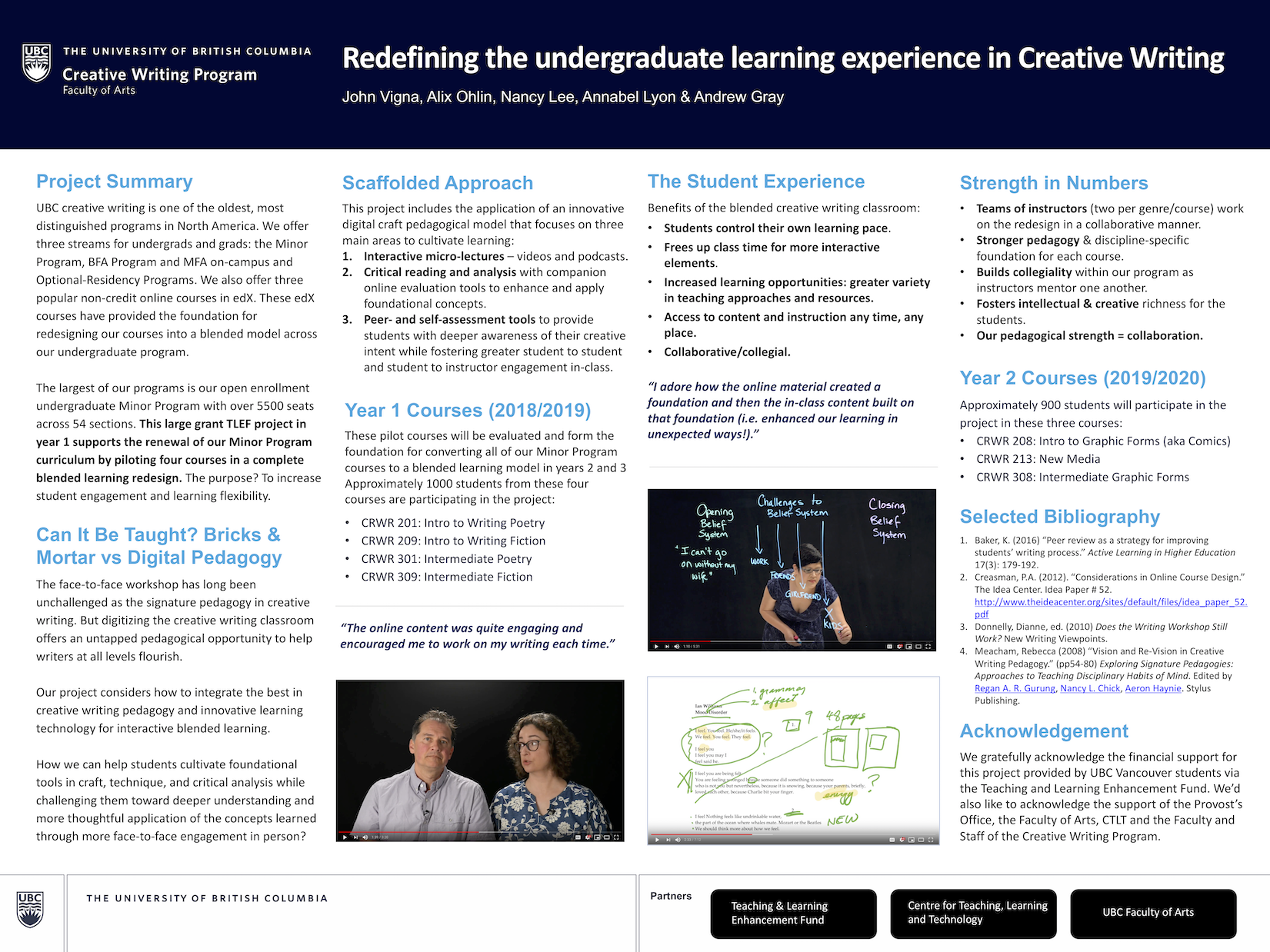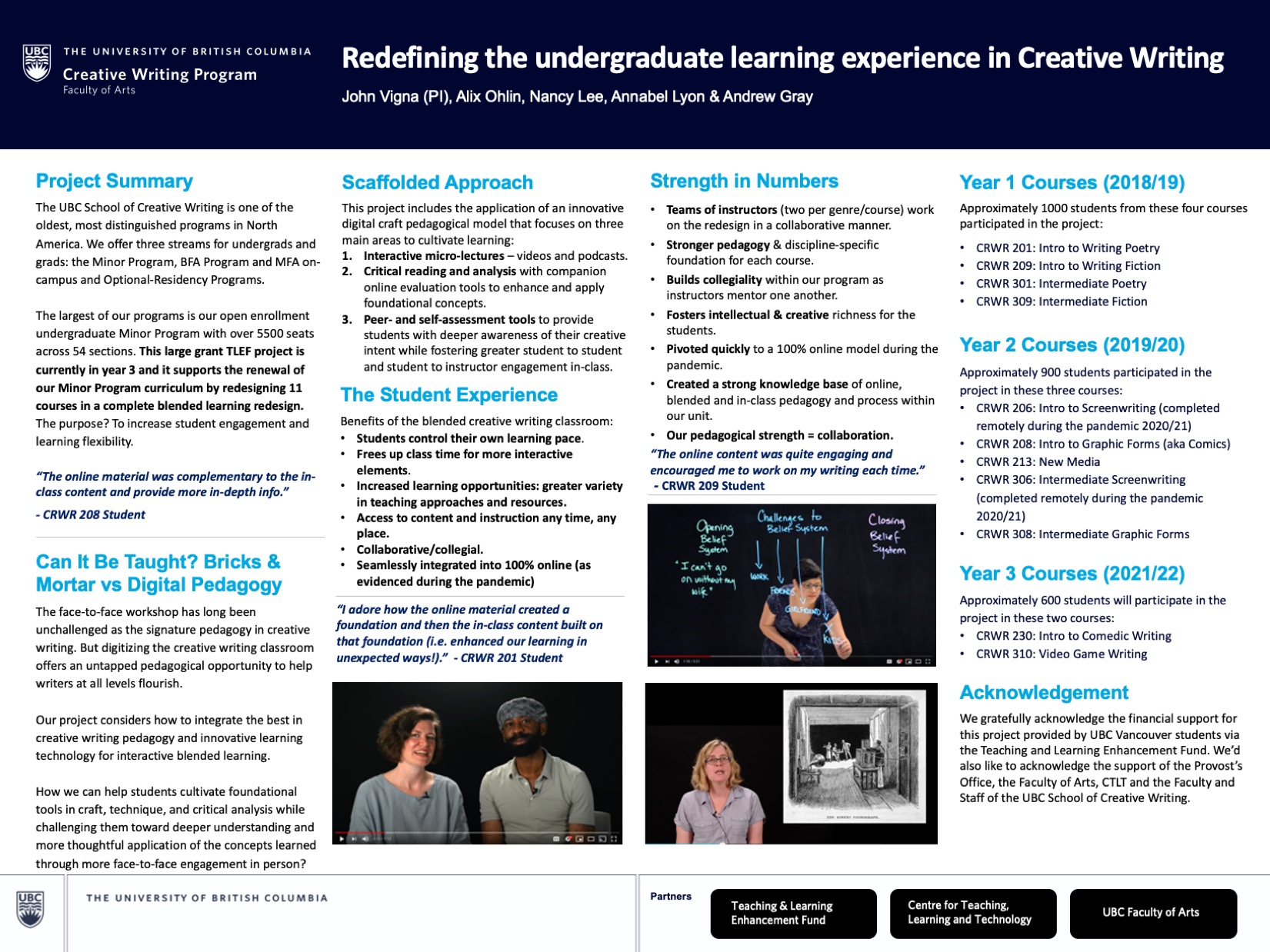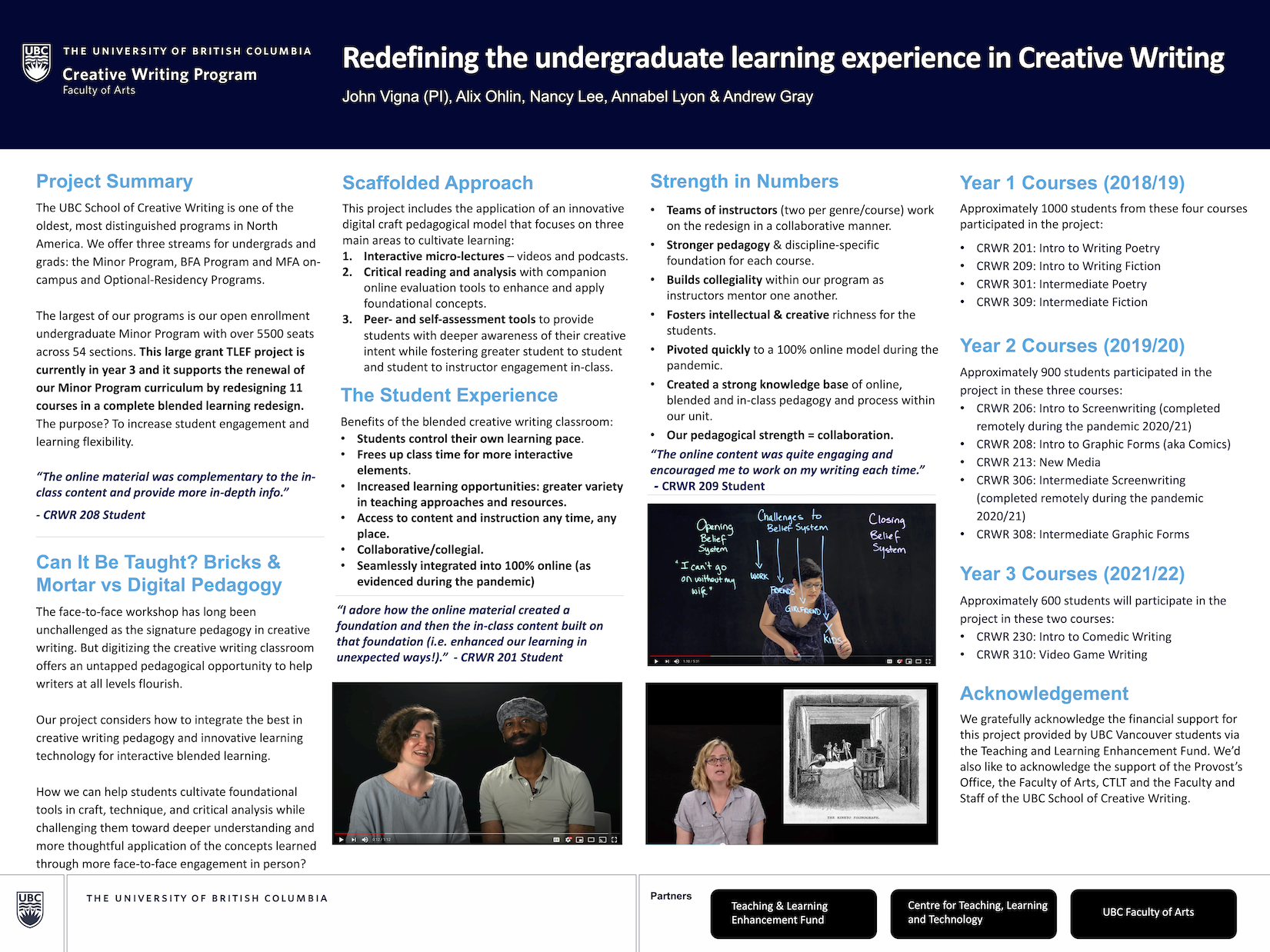| Title | Redefining the undergraduate learning experience in Creative Writing |
|---|---|
| Faculty/College/Unit | Arts |
| Status | Completed |
| Duration | 3 Years |
| Initiation | 04/01/2018 |
| Completion | 03/31/2022 |
| Funding Details | |
| Year 1: Project Year | Year 1 |
| Year 1: Funding Year | 2018/2019 |
| Year 1: Project Type | Large TLEF |
| Year 1: Principal Investigator | John Vigna |
| Year 1: Funded Amount | 79,720 |
| Year 1: Team Members | John Vigna, Instructor, Creative Writing, Faculty of Arts |
| Year 1: Summary | We seek to renew our Minor Program curriculum by piloting five courses in a blended learning redesign to increase student engagement and learning flexibility: three CRWR 200-level lecture courses (200-250 students/each) and the update of two existing 300-level flipped classroom courses (60-90 students/each). In year 1, these courses will be evaluated and form the foundation for converting other Minor Program courses to a blended learning model in years 2 and 3. Based on feedback we’ve received for our scaffolded approach in the edX space, the blended redesign of our Minor Program includes interactive video and audio, critical reading and analysis with companion online evaluation tools, and peer/self-assessment to provide students with deeper awareness of their creative intent and to foster greater student/student and student/instructor engagement. Online resources will facilitate a thoughtful pedagogical foundation allowing in-class contact hours to focus on the core learning outcomes of the course, creative processes and experiential learning vital to creative writing. |
| Year 1: TLEF Showcase |  |
| Year 2: Project Year | Year 2 |
| Year 2: Funding Year | 2019/2020 |
| Year 2: Project Type | Large TLEF |
| Year 2: Principal Investigator | John Vigna |
| Year 2: Funded Amount | 79,728 |
| Year 2: Team Members | John Vigna, Instructor, Creative Writing, Faculty of Arts |
| Year 2: Summary | Building on our four piloted courses in year 1 of the TLEF, we seek to renew our Minor Program curriculum by redesigning five courses in a blended learning model to increase student engagement and learning flexibility: three CRWR 200-level lecture courses (100-200 students/each) and two 300-level flipped classroom courses (60-90 students/each). Based on feedback we’ve received for our scaffolded approach in the initial, anecdotal success of the piloted courses from year 1 of the TLEF and the edX space, the blended redesign of our Minor Program courses in year 2 includes interactive video and audio, critical reading and analysis with companion online evaluation tools, and peer/self-assessment to provide students with deeper awareness of their creative intent and to foster greater student/student and student/instructor engagement. Online resources will facilitate a thoughtful pedagogical foundation allowing in-class contact hours to focus on the core learning outcomes of the course, creative processes and experiential learning vital to creative writing. |
| Year 2: TLEF Showcase |  |
| Year 3: Project Year | Year 3 |
| Year 3: Funding Year | 2020/2021 |
| Year 3: Project Type | Large TLEF |
| Year 3: Principal Investigator | John Vigna |
| Year 3: Funded Amount | 79,720 |
| Year 3: Team Members | John Vigna, Instructor, Creative Writing, Faculty of Arts |
| Year 3: Summary | Building on four piloted courses in year 1 and three courses in year 2, we seek to renew our Minor Program curriculum by redesigning five courses in a blended learning model to increase student engagement and learning flexibility: three CRWR 200-level lecture courses (175-250 students/each) and two 300-level flipped classroom courses (60-118 students/each). Based on feedback we’ve received for our scaffolded approach in the initial, anecdotal success of the piloted courses from year 1 of the TLEF and in year 2 of this project, the blended redesign of our Minor Program courses in year 3 will continue to build upon interactive video and audio, critical reading and analysis with companion online evaluation tools, and peer/self-assessment to provide students with deeper awareness of their creative intent and to foster greater student/student and student/instructor engagement. Online resources will facilitate a thoughtful pedagogical foundation allowing in-class contact hours to focus on the core learning outcomes of the course, creative processes and experiential learning vital to creative writing. |
| Year 3: TLEF Showcase |  |
| Project Report | 2020‑TLEF‑Final-Report-Vigna-WEB.pdf |